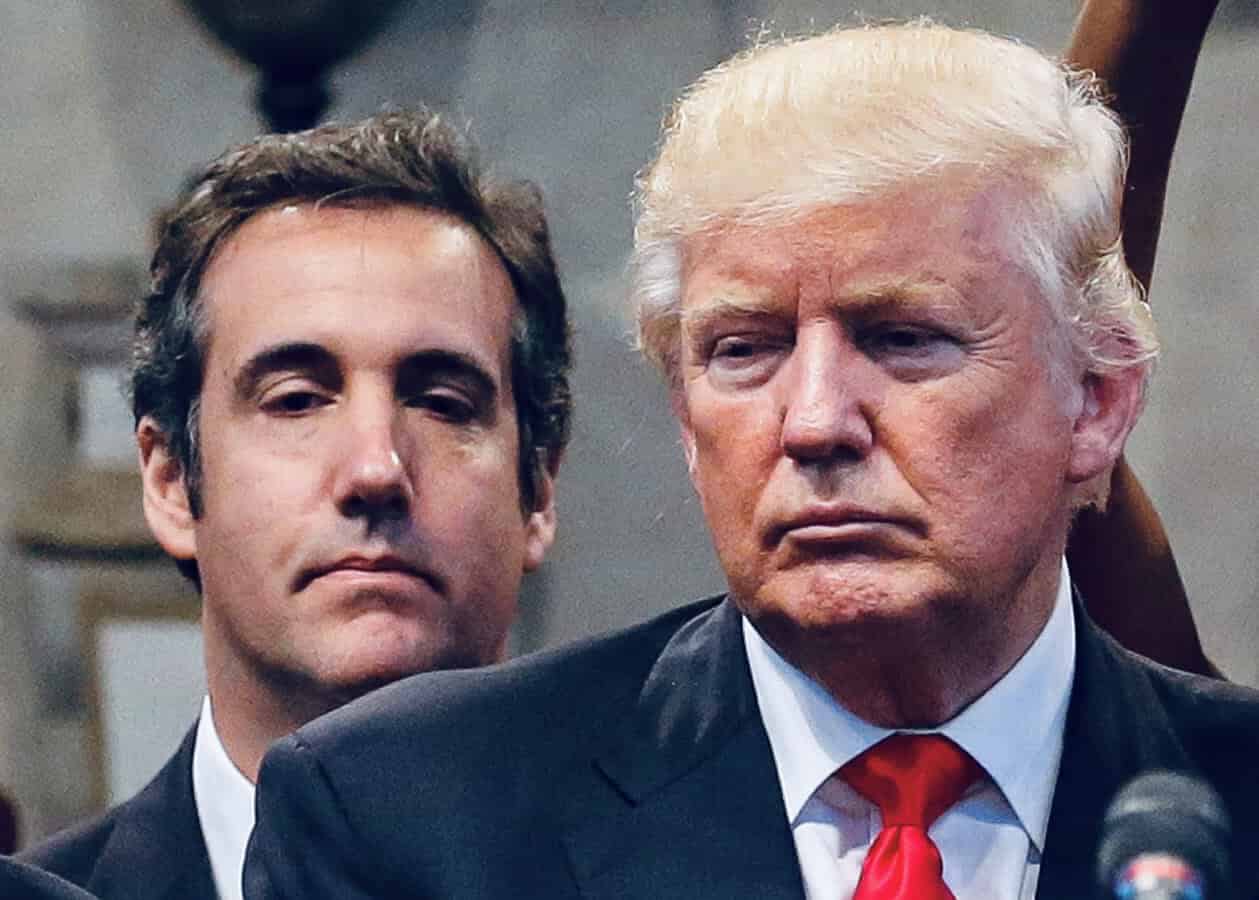Article
Faceoff in Manhattan: Trump, Cohen, and the Frauds Between

Michael Cohen testified against his former boss, Donald Trump, in Manhattan, New York
In a dramatic courtroom confrontation, former President Donald Trump and his onetime loyal attorney, Michael Cohen, came face-to-face on Tuesday. At the heart of the legal battle is a civil fraud trial underway in New York, where Cohen, who once pledged to “take a bullet” for Trump, now stands as a key witness against him. The courtroom was tense as Cohen, now a staunch adversary, hurled accusations at Trump concerning alleged fraudulent inflations of his net worth and asset valuations.
Courtroom Confrontation
As Cohen took the stand, he unveiled a cascade of accusations against Trump, painting a picture of fraudulent activities at the helm of the Trump Organization.
“I was tasked by Mr. Trump to increase the total assets based upon a number that he arbitrarily elected,” Cohen revealed, adding that the task was carried out alongside Allen Weisselberg, the former finance chief of the Trump Organization, to “reverse-engineer the various different asset classes, increase those assets, in order to achieve a number that Mr. Trump had tasked us.”
The majority of Cohen’s testimony Tuesday focused on the falsified financial documents.
“He (Trump) would look at the total assets and he would say, ‘I’m actually not worth 4.5 billion, I’m really worth more like 6.’ OK,” Cohen said. Trump would then order Cohen to go to Weisselberg’s office “and return after we had achieved the desired goal.”
Trump, seated across from Cohen, visibly showed his disagreement with Cohen’s narrative. He denied all allegations, dismissing Cohen’s testimony as fabrications from a “proven liar.”
Outside the courtroom, he reiterated his stance with his lawyers hammering at Cohen’s credibility due to his past guilty pleas and labeling him a “serial liar.”
“The witness is totally discredited. He’s a disgraced felon, and that’s the way it’s coming out,” Trump said.
The courtroom faceoff brought to light the bitter fallout between Trump and Cohen. Their relationship, once fortified by loyalty, now lies in ruins, with Cohen transitioning from a devoted personal attorney to a vocal critic.
Legal Background
In the $250 million lawsuit, New York Attorney General Letitia James alleges Trump and his co-defendants committed repeated fraud in inflating assets on financial statements to get better terms on commercial real estate loans and insurance policies. The case is civil, not criminal, but threatens Trump’s business in New York.
The lawsuit, spearheaded by New York Attorney General Letitia James, alleges Trump and his co-defendants of committing repeated fraud in inflating assets on financial statements to get better terms on commercial real estate loans and insurance policies. This trial is but one part of the legal mess encircling Trump, who faces multiple lawsuits and criminal charges, all while eyeing a return to the political arena in the 2024 presidential race.
The case delves deep into the inner workings of the Trump Organization, scrutinizing its financial practices under Trump’s stewardship.
Cohen-Trump Relationship
Michael Cohen’s relationship with Donald Trump began in 2006 when Cohen started working as Trump’s personal lawyer, a position he held for a decade. Over the years, Cohen had grown from a personal lawyer to an informal advisor during Trump’s presidential campaign in 2015. His involvement deepened when he facilitated payments to individuals alleging affairs with Trump in 2016, showcasing his loyalty and the extent to which he was willing to go for Trump. Cohen was more than just a lawyer; he portrayed himself as a fixer for Trump, dealing with issues that could potentially tarnish Trump’s image. This loyalty seemed unbreakable when Cohen stated he would “take a bullet” for Trump in a 2017 Vanity Fair profile.
However, the tide began to turn early in 2018 when it was revealed that Cohen had paid adult film actress Stormy Daniels $130,000 out of his own pocket, a revelation that began to crack the facade of his loyalty to Trump. As federal scrutiny intensified, Cohen seemed to distance himself from Trump, stating in a July 2018 interview that his first loyalty was to his family and country, not the president.
This marked the beginning of a rift that would only widen over time. By August 2018, Cohen had pleaded guilty to bank fraud, tax fraud, and campaign finance law violations, implicating Trump in a felony over campaign finance violations. This shift from a loyal fixer to a key witness against Trump was a dramatic turn in their relationship, marking Cohen’s transition from a trusted confidant to a significant legal threat to Trump.

